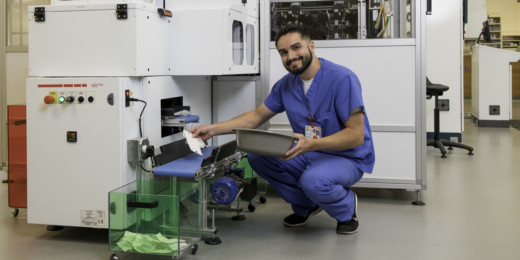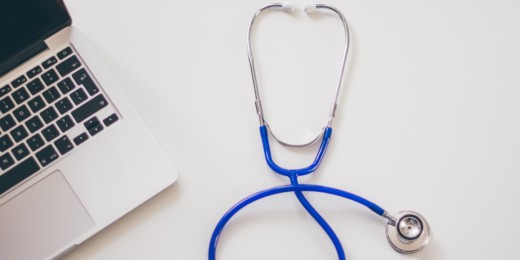When the fight-or-flight stress response was first hardwired into our ancestors' brains, predators were a top concern.
But, times have changed.
"I've been sitting at the same desk for six months now, and there's just not been a lot of predators," quipped Stanford bioengineer Russ Altman, MD, PhD, as he welcomed his guest, neurobiologist Andrew Huberman, PhD, to a show on stress and the brain for Stanford Engineering's podcast series, the "Future of Everything."
Altman's joke highlights an important point. The things that stress humans out have changed dramatically over the years, however the human stress response has remained largely the same.
Because of this, Huberman explained, whether you're facing an approaching tiger or an alarming text, the neurons in your brainstem initiate identical cascades of reactions that dump epinephrine, acetylcholine and other chemicals into your body. This chemical dump causes rapid heart rate and breathing, dilated pupils and other body responses, all subconsciously and all in about 500 milliseconds.
Sources of stress in modern world
With the increased strain of the COVID-19 pandemic, wildfires, the upcoming U.S. presidential election, and social injustices, some people are reporting feeling stressed about feeling stressed, Huberman told Altman.
Huberman says people often describe this "meta stress" saying, "I'm doing my meditation and I'm sleeping well, I'm eating well... why am I so stressed?"
People feel stressed because the fight-or-flight response was designed to "recruit almost all of your being -- your mind, body, eyes, everything" in just half a second, Huberman told Altman. "Meaning, it's going to be very hard to prevent the stress response from happening."
So, if our response to stress is hardwired, and we cannot stem the tide of increasing stressors in our lives, what can we do? According to Huberman, using the body's own stress-relieving mechanisms may be the key.
Huberman's lab studies what influences our stress response with the goal of helping people learn to use the parasympathetic "rest and digest" part of the autonomic nervous system to de-escalate the arousal of stress.
"The most common way that we've learned to turn off the stress response is to ingest food, carbohydrates in particular. ... When our belly is distended, it sends a signal to the brain that counters the stress response, and this is the essence of the parasympathetic response," he said.
But pounding carbs isn't a healthy or practical way to counter stress, Huberman noted. Other stress management techniques like, "exercise, baths, massages and vacations are wonderful... but we wanted to develop tools that people could use in the moment."
How can I protect my brain from stress?
Breathing is a perfect example of such a tool, Huberman said and he's working with colleagues to understand how different breathing patterns affect feelings of stress and tranquility.
One breathing pattern they're studying is called "physiological sighs" -- pattern of breathing in which two inhales through the nose are followed by an extended exhale through the mouth.
Huberman explained how it works: "You have little sacks of air in the lungs, which increase the volume of air that you can bring in. Those sacks collapse over time, and as a result, oxygen levels start to go down and carbon dioxide levels go up in the bloodstream and body, and that a big part of the signaling of the stress response."
The double inhale of the physiological sigh "pops" the air sacks (called alveoli) open, allowing oxygen in and enabling you to offload carbon dioxide in the long exhaled sigh out.
This is a real time tool that people can deploy anytime, anywhere to reduce stress, Huberman said.
Stress serves a purpose, Huberman said, but "I think everybody, starting from a very young age and until really, until our last days of life, could benefit from having tools that allow us to push back on that stress response."
Photo engin akyurt






